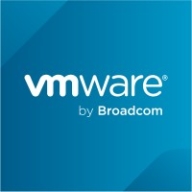

RHEV and VMware ESXi compete in the virtualization market. VMware ESXi has an edge due to its rich feature set, offsetting its higher costs.
Features: RHEV is known for strong integration with Red Hat products, efficient cloud management, and significant cost savings. VMware ESXi shines with advanced management capabilities, high scalability, and robust security features.
Room for Improvement: RHEV could enhance its scalability, diversify its management tools, and improve integration with non-Red Hat environments. VMware ESXi could benefit from a simpler deployment process, streamlined documentation, and more supportive open-source integrations.
Ease of Deployment and Customer Service: RHEV offers streamlined deployment, especially within Red Hat ecosystems, along with responsive customer service. VMware ESXi presents a more complex deployment process but benefits from extensive documentation and community support, making it suitable for integration at scale.
Pricing and ROI: RHEV is competitively priced with a focus on reducing initial setup costs, appealing to budget-conscious businesses. VMware ESXi, although pricier, offers excellent ROI through superior scalability and comprehensive management tools, making it a valuable long-term investment for organizations prioritizing functionality.
| Product | Market Share (%) |
|---|---|
| VMware ESXi | 2.1% |
| RHEV | 2.4% |
| Other | 95.5% |


| Company Size | Count |
|---|---|
| Small Business | 21 |
| Midsize Enterprise | 5 |
| Large Enterprise | 12 |
| Company Size | Count |
|---|---|
| Small Business | 12 |
| Midsize Enterprise | 5 |
| Large Enterprise | 14 |
Red Hat Enterprise Virtualization, or RHEV, is a leading open standard enterprise virtualization management solution. This solution supports virtualization of servers and desktops using the same infrastructure and a single easy-to-use interface.
Because RHEV is based on open standards, it is vendor-independent and a lot more cost effective and flexible than proprietary solutions.
VMware ESXi serves as a hypervisor enabling virtualization by transforming physical servers into virtual infrastructures, supporting efficient server management, development, and production environments.
Organizations utilize VMware ESXi for its high availability and ability to host diverse workloads effectively. Known for stability and maturity, it efficiently handles server, networking, and storage demands, with integral features like vMotion and memory compression. ESXi integrates well with data center operations, allowing seamless resource allocation and virtual machine migration. Despite impressive capabilities, users encounter challenges with setup complexity, licensing costs, and technical support delays, leading some to explore different solutions.
What are the main features of VMware ESXi?
What benefits and ROI do organizations see with VMware ESXi?
Industries deploying VMware ESXi benefit in sectors requiring robust IT infrastructure, including finance, healthcare, and education. Its capability to support high availability and diverse workloads proves essential for critical applications, enhancing productivity and agility in dynamic environments.
We monitor all Server Virtualization Software reviews to prevent fraudulent reviews and keep review quality high. We do not post reviews by company employees or direct competitors. We validate each review for authenticity via cross-reference with LinkedIn, and personal follow-up with the reviewer when necessary.